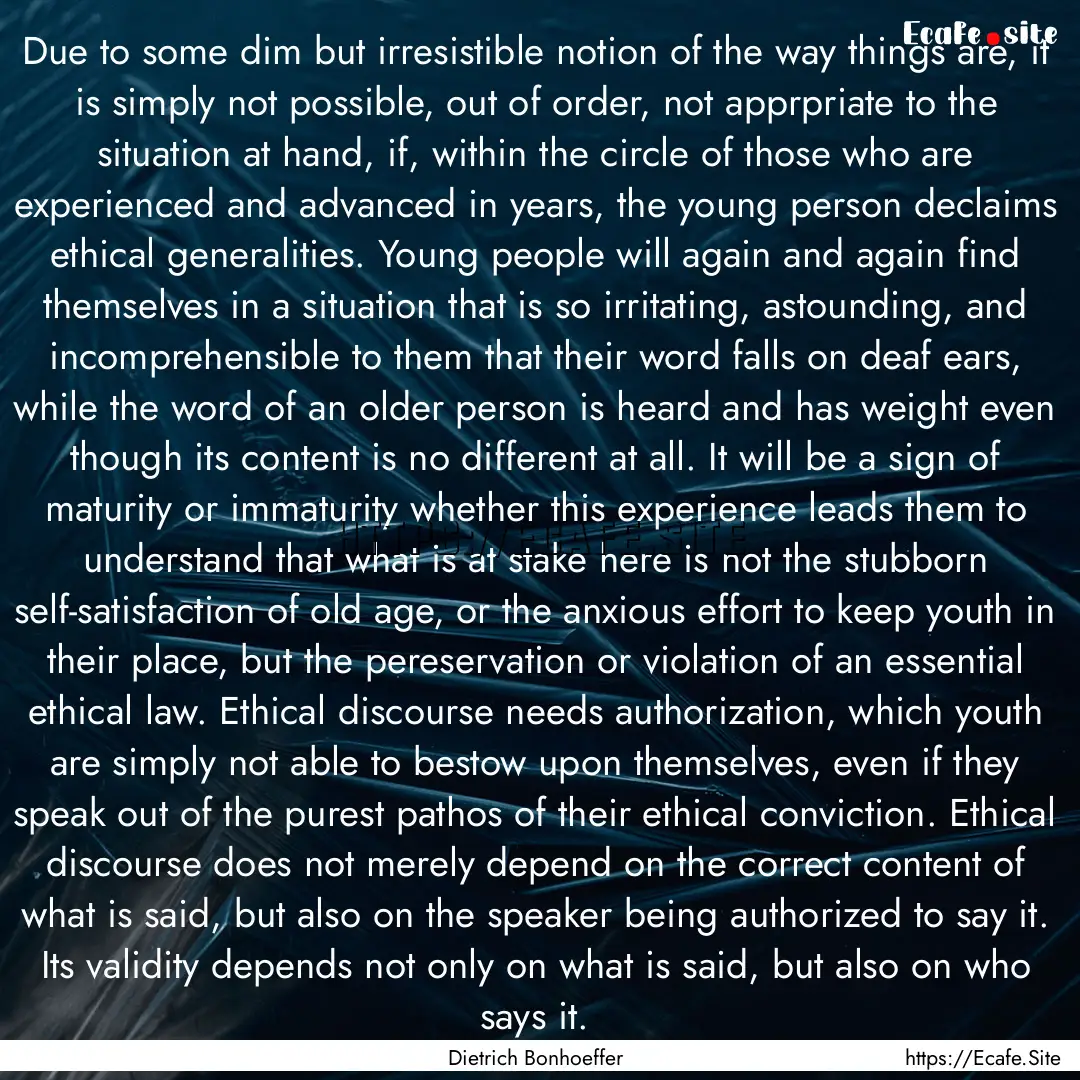
Report, if you have a problem with this page“ Due to some dim but irresistible notion of the way things are, it is simply not possible, out of order, not apprpriate to the situation at hand, if, within the circle of those who are experienced and advanced in years, the young person declaims ethical generalities. Young people will again and again find themselves in a situation that is so irritating, astounding, and incomprehensible to them that their word falls on deaf ears, while the word of an older person is heard and has weight even though its content is no different at all. It will be a sign of maturity or immaturity whether this experience leads them to understand that what is at stake here is not the stubborn self-satisfaction of old age, or the anxious effort to keep youth in their place, but the pereservation or violation of an essential ethical law. Ethical discourse needs authorization, which youth are simply not able to bestow upon themselves, even if they speak out of the purest pathos of their ethical conviction. Ethical discourse does not merely depend on the correct content of what is said, but also on the speaker being authorized to say it. Its validity depends not only on what is said, but also on who says it. ”

Dietrich Bonhoeffer
From : Ethics



